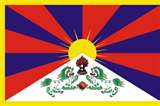Published: July 26, 2009
SHENZHEN, China — When a closely guarded prototype of a new Apple iPhone went missing at a huge factory here two weeks ago, an internal investigation focused on a shy, 25-year-old employee named Sun Danyong.
Mr. Sun, a college graduate working in the logistics department, denied stealing the iPhone. But he later complained to friends that he had been beaten and humiliated by the factory’s security team. On the night he was questioned, he sent an anguished text message to his girlfriend.
“Dear, I’m sorry. Go back home tomorrow,” he wrote, according to a message she later posted online. “I ran into some problems. Don’t tell my family. Don’t contact me. I’m begging you for the first time. Please do it! I’m sorry.”
Soon after, in the early-morning hours of July 16, Mr. Sun apparently jumped to his death from the 12th floor of an apartment building in what his employer, Foxconn Technology, says was a suicide.
Apple and Foxconn, one of the world’s biggest manufacturers of consumer electronics and a major Apple supplier, issued statements last week expressing sorrow for the death. Foxconn said it suspended one security officer, pending a police investigation, and that the company was now considering counseling services for its employees.
The Apple statement said: “We are saddened by the tragic loss of this young employee, and we are awaiting results of the investigations into his death. We require that our suppliers treat all workers with dignity and respect.” The company would not comment further.
The local police bureau declined to answer questions about the case. But reports of the apparent suicide have set off a firestorm of criticism of Foxconn’s treatment of Mr. Sun, labor conditions at its factories and the pressures Apple places on suppliers to abide by the culture of secrecy that surrounds its development of new products.
The case also underscores the challenges that global companies face in trying to safeguard their designs and intellectual property in the hotly contested smartphone market, particularly here in the southern Chinese city of Shenzhen, an electronics manufacturing center known for piracy and counterfeiting.
Apple’s popular iPhone is already widely imitated and counterfeited in China. And there are regular rumors on Chinese Web sites about new Apple prototypes leaking out of Chinese factories.
“When you outsource to a third party, you lose some control,” says Dane Chamorro, general manager in China at Control Risks, a global consulting firm. “And if you’re outsourcing to China, it’s going to be even more challenging. There’s going to be a bounty on every design.”
Labor rights groups say the worker’s death should compel Apple to improve conditions at its supplier factories in China and prevent worker abuse.
Foxconn, part of Taiwan’s Hon Hai group, has also been sharply criticized because of suspicions about unduly harsh treatment of the worker.
Foxconn, which produces electronics for some of the world’s best-known brands, like Sony and Hewlett-Packard, operates a cluster of sprawling factories in southern China. One of its Shenzhen campuses has nearly 300,000 workers.
But some labor rights activists say the company treats employees harshly, routinely violating labor laws.
In an e-mail message on Thursday, China Labor Watch, which monitors Chinese factories and is based in New York, blamed Mr. Sun’s death on “Foxconn’s inhumane and militant management system, which lacks fundamental respect for human rights.” The group said it published an in-depth study of Foxconn last year, detailing its abuses.
James Lee, general manager of China operations at Foxconn, defended the company’s labor practices in a lengthy interview on Friday, and also said the company would strive to improve management of its facilities.
“It’s very difficult for the company to defend itself against such charges,” Mr. Lee said of complaints from labor rights groups. “You’re welcome to look at how employees are treated here.”
A reporter toured two of the company’s campuses in Shenzhen on Friday, including the one where Mr. Sun worked. The campuses were so large they contained retail stores, banks, post offices and high-rise dormitories with outdoor swimming pools.
The reporter was not allowed to see manufacturing lines because the company said it had to protect trade secrets.


